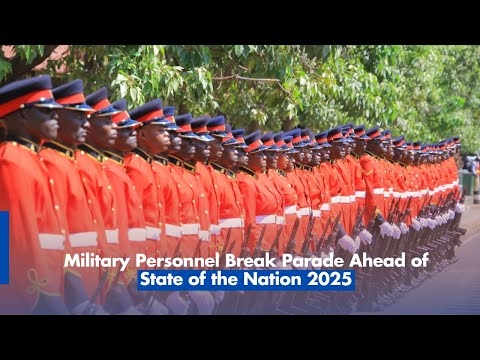Britain's King Charles III's visit to Kenya ended in disappointment.
Kenya Human Rights Commission and victims of British atrocities fervently asked him to apologise for these historical violations publicly and unequivocally.
The transgressions, initially committed by the British colonial government, persisted through the actions of its corporations even after Kenya gained independence.
KHRC has been documenting these corporate-related abuses in tea and flower farms, among other sectors, shedding light on the ongoing repercussions of past injustices within the country.
From 2002, KHRC walked with Mau Mau freedom fighters as they sought justice, going up to London courts to show the magnitude of British abuses in Kenya. This journey culminated in an out-of-court settlement in June 2013, with the British government agreeing to a modest compensation for 5,228 victims.
Former British Foreign Secretary William Hague regretted the historical atrocities, announcing compensation payments averaging around $5,700 for each of the 5,228 claimants.
This regret, made in Parliament, recognised that the victims had endured torture and abuse under the colonial administration. Hague's statement marked an admission by Britain of the violent and sordid aspects of its imperial history.
Given this context, the nation anticipated a step beyond Hague's words when King Charles visited Kenya. The King was expected to apologise unequivocally, formally and publicly for the pain and suffering caused by the colonial administration.
But King Charles did not apologise. Instead, like Hague, he stated regret: "The wrongdoings of the past are a cause of the greatest sorrow and the deepest regret. There were abhorrent and unjustifiable acts of violence committed against Kenyans as they waged, as you said at the United Nations, a painful struggle for independence and sovereignty – and for that, there can be no excuse. In coming back to Kenya, it matters greatly to me that I should deepen my own understanding of these wrongs and that I meet some of those whose lives and communities were so grievously affected."
King Charles's statement was not an apology. It took a cautious and self-preserving tone, seemingly aimed at protecting the British brutalities and the violent history of its tenure in Kenya.
In stark contrast, Frank-Walter Steinmeier, the President of Germany, who was visiting Tanzania on November 1, 2023, publicly and sincerely apologised for the atrocities committed by his country during its colonial history in the former colony.
On behalf of his country, Steinmeier explicitly asked for forgiveness for the gross human rights violations, stating in German, "I would like to ask for forgiveness for what Germans did to your ancestors here. I want to assure you that we Germans will search with you for answers to the unanswered questions that give you no peace."
Steinmeier even went further to commit to "the repatriation of cultural property and human remains" looted by Germans from Tanzania.
Why was it so difficult for King Charles to publicly apologise like the German president?
King Charles must understand that genuine reconciliation and establishing a "closer bond for the years ahead," as he envisions, can only be achieved through an unequivocal and unreserved public apology for the atrocities committed by the British. Without such an apology, the wounds of the past are likely to persist, hindering the desired progress toward understanding and unity.
King Charles must recognise that a meaningful public apology requires agreement with survivors, the families of victims, or their representatives. Such an apology should be explicit and unconditional, acknowledging the severe harm suffered by the victims and taking responsibility for their actions.
It should include a sincere request for forgiveness and an offer of adequate reparations as a tangible step toward addressing the historical injustices.
While some media outlets reported that King Charles privately met with a few descendants of victims of British colonial atrocities, including Dedan Kimathi, Mekatilili wa Menza and Koitalel arap Samoei, the details of the meeting remain undisclosed to the public. No information regarding the discussions or any commitments King Charles may have made during this encounter is available.
Still, the King fell short of popular demand—an unequivocal public apology. The tour was a disappointment.
KHRC’s programme adviser






![[PHOTOS] Betty Bayo laid to rest in Kiambu](/_next/image?url=https%3A%2F%2Fcdn.radioafrica.digital%2Fimage%2F2025%2F11%2F3b166e2e-d964-4503-8096-6b954dee1bd0.jpg&w=3840&q=100)







